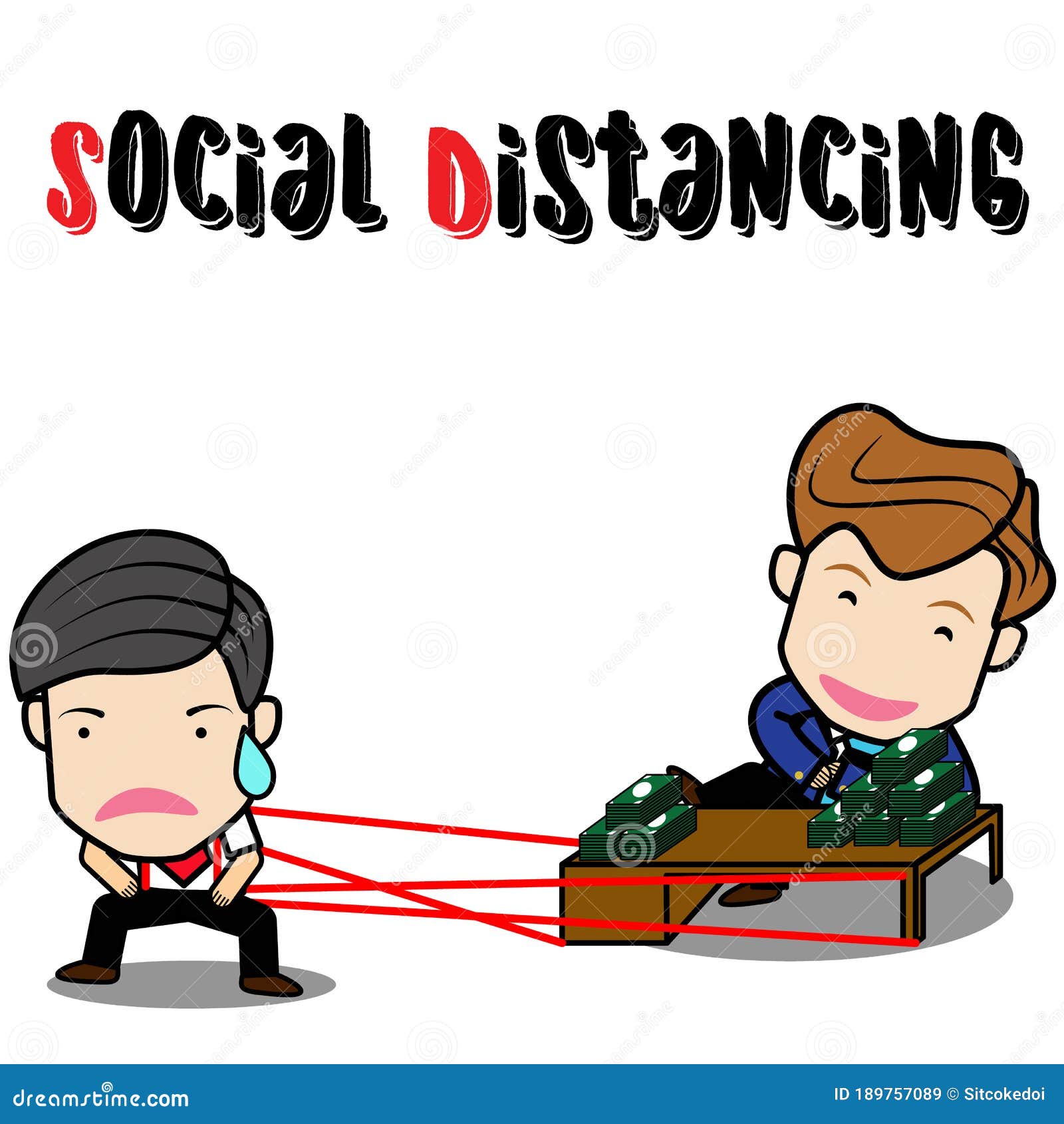Ever had that gut feeling like your boss might be taking you for a ride? Like they’re squeezing every last drop of energy from you without giving much back? Well, you’re not alone, my friend. Workplace exploitation is more common than you think, and recognizing the signs is the first step to reclaiming your power. If you suspect your boss might be crossing the line, this article’s got your back. Let’s break it down and figure out if you’re being treated fairly—or if it’s time to make a change.
Let’s be real here. Not all bosses are created equal. Some are amazing mentors who genuinely care about your growth, while others… well, let’s just say they might be using you for their own benefit. The workplace can sometimes feel like a jungle where only the strongest survive. But here’s the thing: you deserve to be treated with respect, fairness, and dignity. And if you’re not getting that, it’s time to wake up and take action.
This article isn’t just about pointing fingers—it’s about empowering you. We’ll dive deep into the 10 most common signs that your boss might be exploiting you. From unreasonable workloads to lack of recognition, we’ve got it all covered. By the end of this, you’ll have a clear picture of whether your workplace situation is healthy or toxic. So, buckle up, grab a coffee, and let’s get real about what’s really going on in your office.
- Unlock The Magic Of Vega Moviessi Your Ultimate Streaming Destination
- Tamilblasters Domain Your Ultimate Guide To Understanding The Controversial Online Hub
Table of Contents
- 10 Signs Your Boss is Exploiting You
- What is Workplace Exploitation?
- A Brief History of Workplace Exploitation
- Sign 1: Unreasonable Expectations
- Sign 2: Lack of Recognition
- Sign 3: Constant Micromanagement
- Sign 4: No Room for Growth
- Sign 5: Overworking Without Compensation
- Sign 6: Ignoring Your Mental Health
- Sign 7: Lack of Transparency
- Sign 8: Favoritism
- Sign 9: Unrealistic Deadlines
- Sign 10: No Work-Life Balance
- What to Do If You’re Being Exploited
- Conclusion: Take Control of Your Career
10 Signs Your Boss is Exploiting You
Alright, let’s cut to the chase. Exploitation in the workplace isn’t always obvious. Sometimes, it creeps up on you slowly, making you question whether it’s really happening or if you’re just being overly sensitive. But trust me, there are clear signs that can help you identify if your boss is crossing the line. Here’s a quick rundown of what we’ll cover:
- Unreasonable expectations that leave you feeling overwhelmed.
- Lack of recognition for your hard work, even when you go above and beyond.
- Constant micromanagement that stifles your creativity and independence.
- No opportunities for growth or development, leaving you stuck in the same position.
- Overworking without fair compensation or overtime pay.
- Ignoring your mental health and well-being, treating you like a machine.
- Lack of transparency in communication and decision-making.
- Favoritism towards certain employees, leaving others feeling undervalued.
- Unrealistic deadlines that set you up for failure.
- No work-life balance, making it impossible to maintain a healthy lifestyle.
These signs aren’t just minor inconveniences—they’re red flags that should not be ignored. So, let’s dive deeper into each one and see how they might be affecting your career.
What is Workplace Exploitation?
Workplace exploitation happens when an employer takes advantage of their employees in ways that are unfair, unethical, or even illegal. It’s not just about working long hours or dealing with a tough boss—it’s about being treated as a resource rather than a human being. Exploitation can take many forms, from unpaid overtime to lack of career advancement, and it often leaves employees feeling undervalued and unappreciated.
- Movierulz In Kannada 2024 Your Ultimate Guide To Streaming And Downloading Movies
- Bollyflix Movie Download Your Ultimate Guide To Streaming Bollywood Blockbusters
But why does it happen? Well, some bosses prioritize profits over people. They see their employees as cogs in a machine rather than individuals with needs, dreams, and limits. Others might simply lack the skills or empathy to manage their team effectively. Whatever the reason, workplace exploitation is a serious issue that affects millions of workers around the world.
A Brief History of Workplace Exploitation
Workplace exploitation isn’t a new phenomenon. Back in the day, during the Industrial Revolution, workers were often subjected to grueling hours, unsafe conditions, and minimal pay. It wasn’t until the labor movement gained momentum that workers started to demand—and get—better treatment. Unions were formed, laws were passed, and slowly but surely, the workplace began to evolve.
But even today, exploitation still exists in many forms. From gig workers without benefits to corporate employees burning out under the weight of unrealistic expectations, the struggle continues. Understanding the history of workplace exploitation can help us recognize the patterns and push for change.
| Historical Event | Year | Impact |
|---|---|---|
| Industrial Revolution | 1760-1840 | Introduced long working hours and unsafe conditions |
| Formation of Labor Unions | 1880s | Fought for workers' rights and better conditions |
| Passing of Fair Labor Standards Act | 1938 | Established minimum wage and overtime laws |
Sign 1: Unreasonable Expectations
Let’s start with the big one: unreasonable expectations. If your boss is constantly piling on tasks without considering your capacity, it’s a clear sign of exploitation. Sure, we all have busy days, but when it becomes the norm, it’s a problem. You’re not a robot, and expecting you to work miracles without proper support is just unfair.
According to a study by Harvard Business Review, employees who feel overwhelmed by their workload are more likely to experience burnout and decreased job satisfaction. So, if you’re constantly juggling tasks that seem impossible to complete, it’s time to speak up—or look for a healthier work environment.
How to Handle It
- Set boundaries and communicate your limits clearly.
- Use project management tools to track your workload and prioritize tasks.
- Seek support from colleagues or HR if the situation doesn’t improve.
Sign 2: Lack of Recognition
Let’s talk about recognition—or the lack thereof. Imagine pouring your heart and soul into a project, only to have your boss take all the credit. Or worse, they don’t even acknowledge your effort. It’s demotivating, frustrating, and frankly, disrespectful. Recognition doesn’t always have to be grand; a simple “thank you” can go a long way.
Research shows that employees who feel valued are more engaged and productive. So, if your boss is ignoring your contributions, it’s a red flag that they don’t truly care about your well-being or success.
Sign 3: Constant Micromanagement
Micromanagement is the ultimate buzzkill. If your boss is constantly hovering over your shoulder, checking every little detail, and second-guessing your decisions, it’s a sign they don’t trust you. And let’s be honest, who can thrive in an environment like that?
Not only does micromanagement stifle creativity, but it also creates unnecessary stress. Instead of empowering you to take ownership of your work, it makes you feel like you’re constantly under scrutiny. If this sounds familiar, it’s time to have a conversation about trust and autonomy.
Sign 4: No Room for Growth
Let’s face it, no one wants to stay in the same position forever. Growth and development are essential for career satisfaction. If your boss isn’t providing opportunities for learning, mentorship, or advancement, they might be holding you back. And that’s a big no-no.
According to a survey by LinkedIn, 94% of employees would stay longer at a company if it invested in their career development. So, if your boss isn’t prioritizing your growth, it’s time to consider other options.
Sign 5: Overworking Without Compensation
Overworking is a common issue in many workplaces, but it becomes exploitation when there’s no fair compensation. If you’re regularly working late nights, weekends, or holidays without overtime pay or time off, your boss might be taking advantage of you. And that’s just not cool.
Remember, your time is valuable. If your boss isn’t respecting that, it’s a clear sign that they don’t value you as an employee—or as a person.
Sign 6: Ignoring Your Mental Health
Mental health is just as important as physical health, yet many bosses still overlook it. If your workplace culture promotes burnout, stress, and anxiety, it’s a toxic environment. And if your boss isn’t taking steps to support your well-being, they’re contributing to the problem.
Studies show that employees who feel supported in their mental health are more productive and engaged. So, if your boss isn’t prioritizing your mental health, it’s time to find a workplace that does.
Sign 7: Lack of Transparency
Transparency is key in any healthy relationship, including the one between you and your boss. If they’re withholding information, making decisions without consulting you, or keeping you in the dark about company goals, it’s a red flag. Trust is built on openness, and without it, you’re left feeling disconnected and undervalued.
According to a report by Glassdoor, transparency is one of the top factors employees look for in a workplace. So, if your boss isn’t being upfront, it’s a sign that they might not have your best interests at heart.
Sign 8: Favoritism
Favoritism is a classic sign of workplace exploitation. If your boss consistently favors certain employees over others, it creates a toxic environment where hard work and merit don’t matter. Instead, it’s all about who you know—or who you schmooze with.
This not only demotivates other employees but also fosters resentment and division within the team. If you’ve noticed favoritism in your workplace, it’s time to address it with your boss—or consider finding a more inclusive environment.
Sign 9: Unrealistic Deadlines
Deadlines are a necessary part of any job, but they should be realistic. If your boss is constantly setting impossible deadlines that set you up for failure, it’s a sign of exploitation. Not only does it create unnecessary stress, but it also affects the quality of your work.
According to a study by Project Management Institute, projects with realistic deadlines are more likely to succeed. So, if your boss isn’t setting achievable goals, it’s time to have a conversation about expectations and timelines.
Sign 10: No Work-Life Balance
Finally, let’s talk about work-life balance—or the lack thereof. If your boss expects you to be available 24/7, constantly checking emails, and working outside of office hours, it’s a clear sign that they’re overstepping. You deserve time to recharge, spend with loved ones, and pursue your passions outside of work.
Research shows that employees with a healthy work-life balance are happier, more productive, and less likely to burn out. So, if your boss isn’t respecting your boundaries, it’s time to set them—and stick to them.
What to Do If You’re Being Exp



